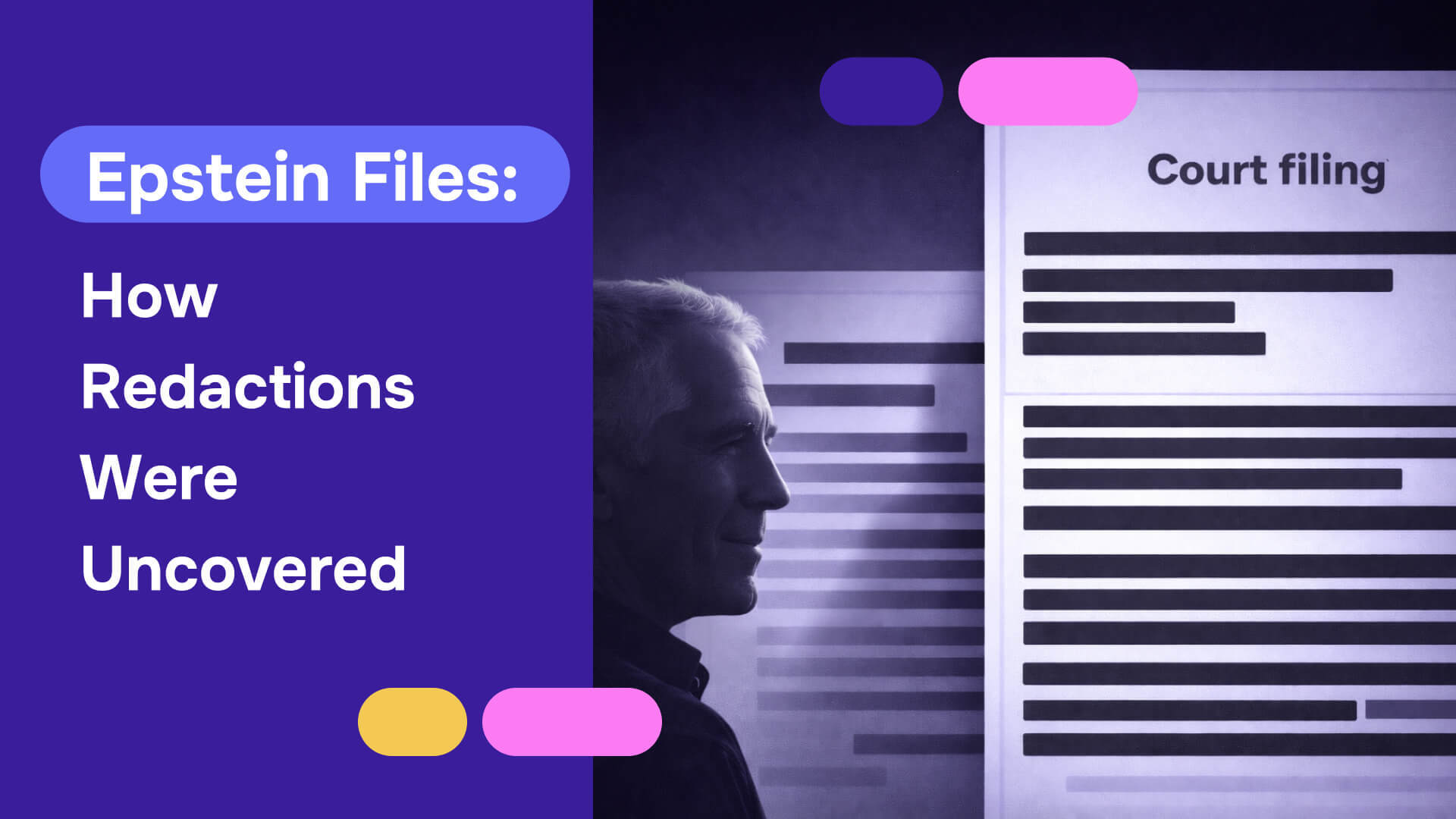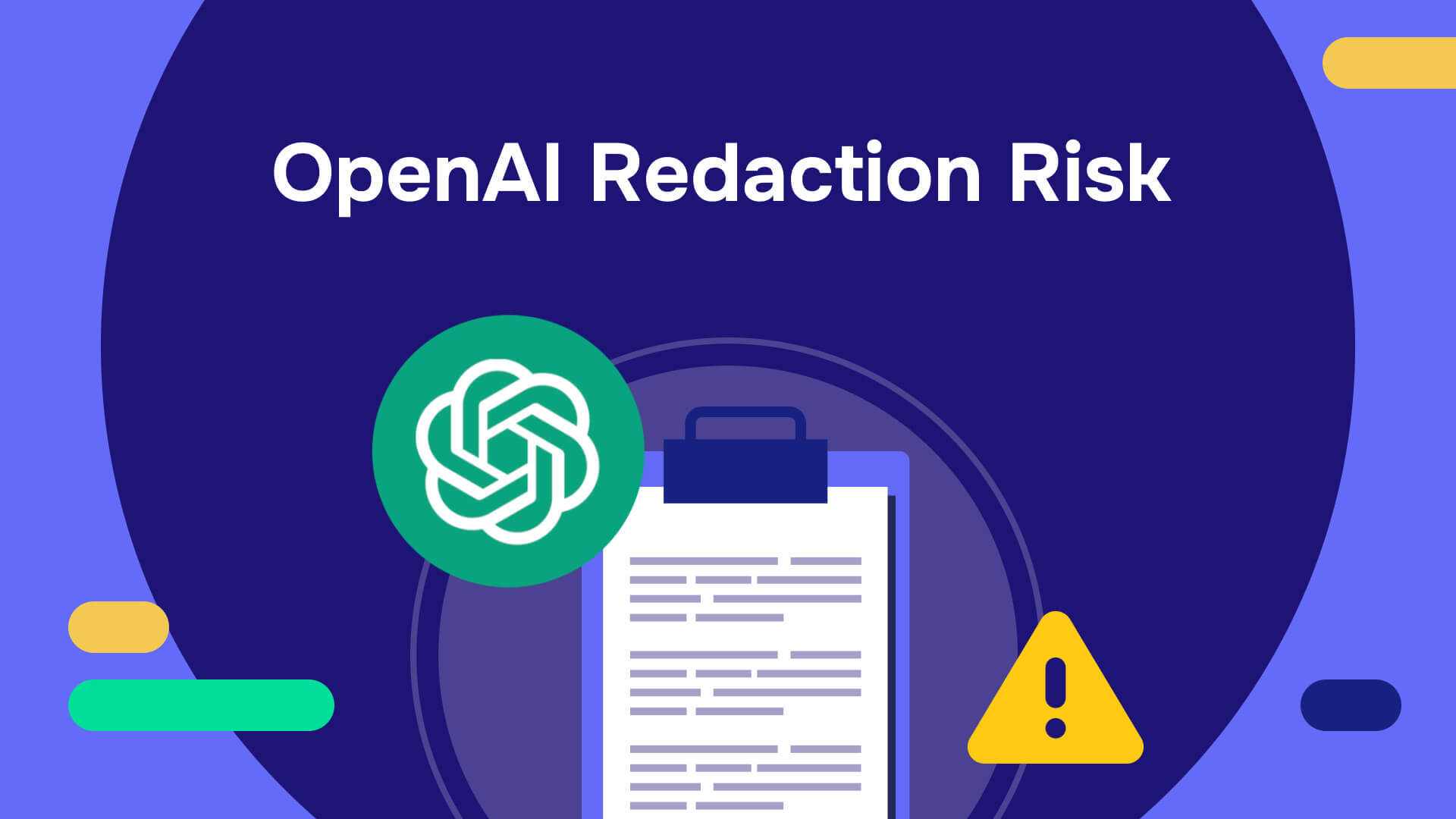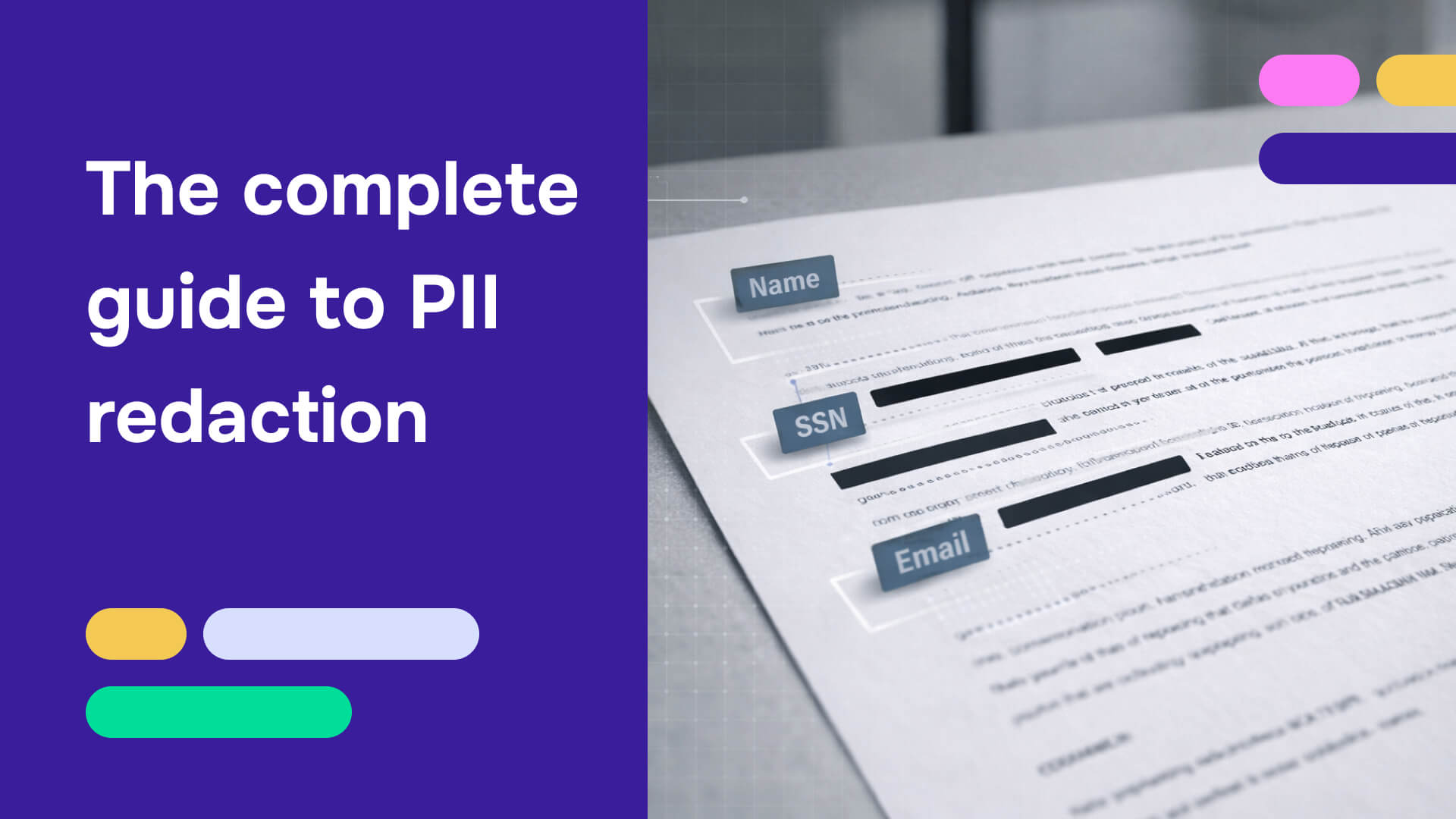When it comes to redacting sensitive information, the difference between a secure software and an untrustworthy one can mean millions in fines, reputational harm, or compliance violations. Whether you’re a law firm filing documents, a healthcare provider safeguarding HIPAA-protected PHI, or a financial institution securing PII, you need redaction software that goes beyond black boxes and delivers true, permanent redaction.
While companies like Foxit and its AI-based subsidiary iDox.ai provide redaction features, recent reporting has raised significant concerns about governance, trust, and where your redacted data is actually stored.
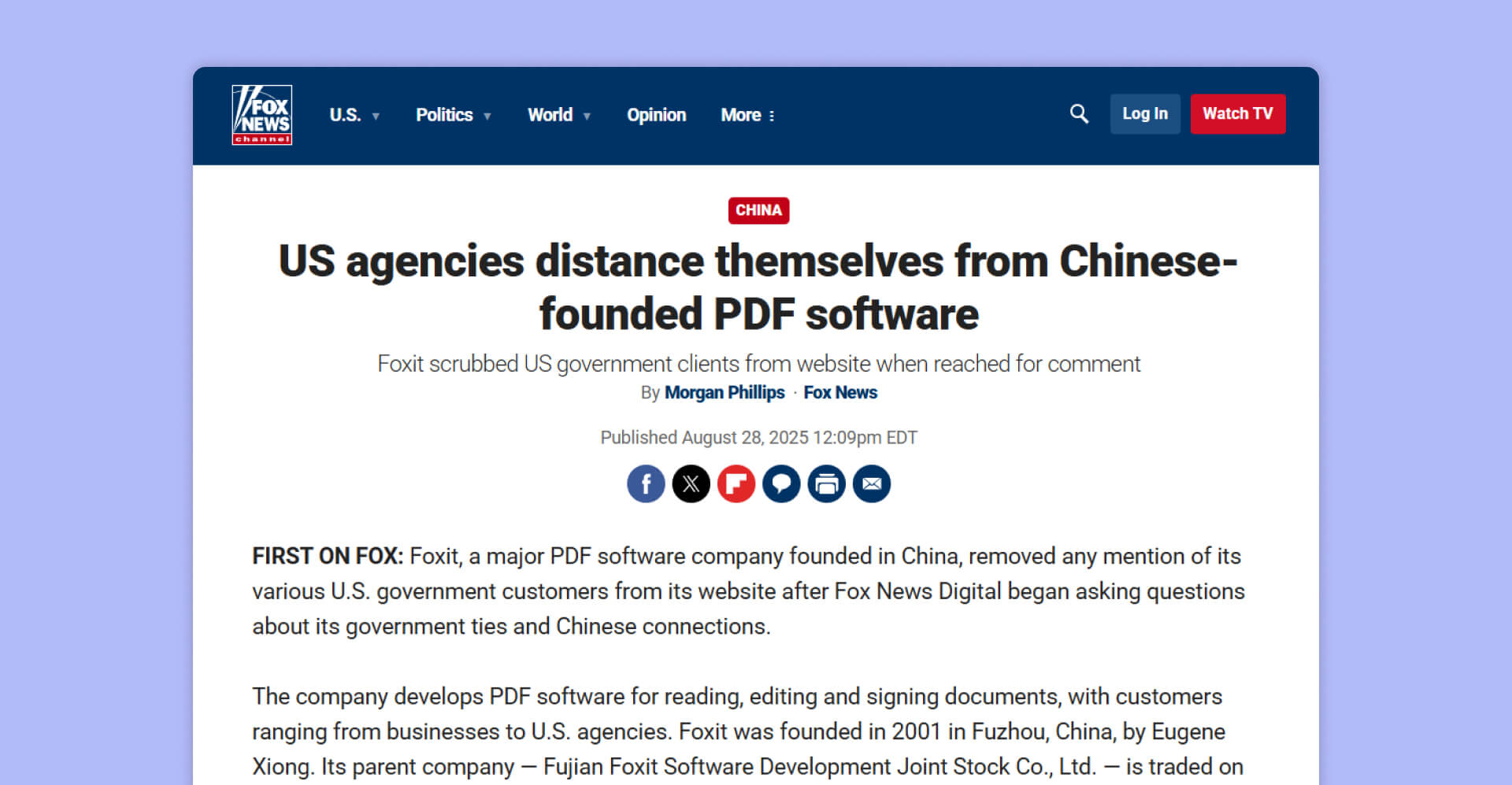
By contrast, Redactable was built from the ground up as a secure redaction software with U.S.-based data residency, SOC 2 Type II and HIPAA compliance, and irreversible redaction methods. This article explores why Redactable is the safer, more trustworthy choice, and why data residency is now the deciding factor in choosing a redaction tool.
Why redaction matters more than ever
Redaction isn’t just about making text invisible. It’s about removing sensitive data permanently, including hidden text, metadata, and revision history.
Poor redaction practices - like overlaying black boxes in PDFs have famously failed in court cases, exposing confidential information with a simple copy-paste. This is why organizations across legal, healthcare, government, and finance are upgrading to secure redaction software that ensures compliance and protects trust.
Who’s behind your redaction tool?
Foxit is a well-known name in the PDF software world. It markets Foxit Smart Redact and heavily promotes its partnership with iDox.ai, which specializes in AI redaction software. On the surface, iDox.ai offers powerful AI-driven redaction across multiple file types, batch processing, and customizable redaction rules.

But the critical question isn’t just what features exist. It’s who owns and governs the tool, where data is stored, and what laws apply to it. That’s where trust can falter.
Fresh concerns: U.S. Agencies distance themselves from Foxit
In August 2025, Fox News reported that multiple U.S. agencies - including the Department of Justice (DOJ) and the Department of Homeland Security (DHS) - had removed Foxit software from their networks or confirmed they were not renewing contracts.
The article revealed:
- Foxit had promoted government clients like State, Navy, and DOJ on its site - those references were later removed.
- DHS reportedly placed Foxit on a prohibited software list.
- DOJ confirmed it eliminated Foxit software after a security review.
The core concern: Foxit is a Chinese-founded company, and under China’s 2017 National Intelligence Law, companies can be compelled to provide access to data. Even with U.S. subsidiaries, that parentage introduces legal uncertainty.
For compliance-driven industries handling PII, PHI, or classified data, this kind of uncertainty is more than a headline—it’s a vendor risk red flag.
Why data residency is the core of redaction security
Every time you upload documents into a redaction software, you are entrusting it with sensitive information. If that data is routed through or stored in jurisdictions with conflicting laws, you lose control.
Data residency isn’t just about where servers are located. It defines:
- Which government can compel access to your data.
- Which compliance standards apply (HIPAA, GDPR, CCPA, etc.).
- Which risks your customers perceive when trusting you with their information.
That’s why modern security reviews prioritize clear, U.S.-based data residency as a requirement for any redaction software vendor.
How Redactable handles residency and compliance
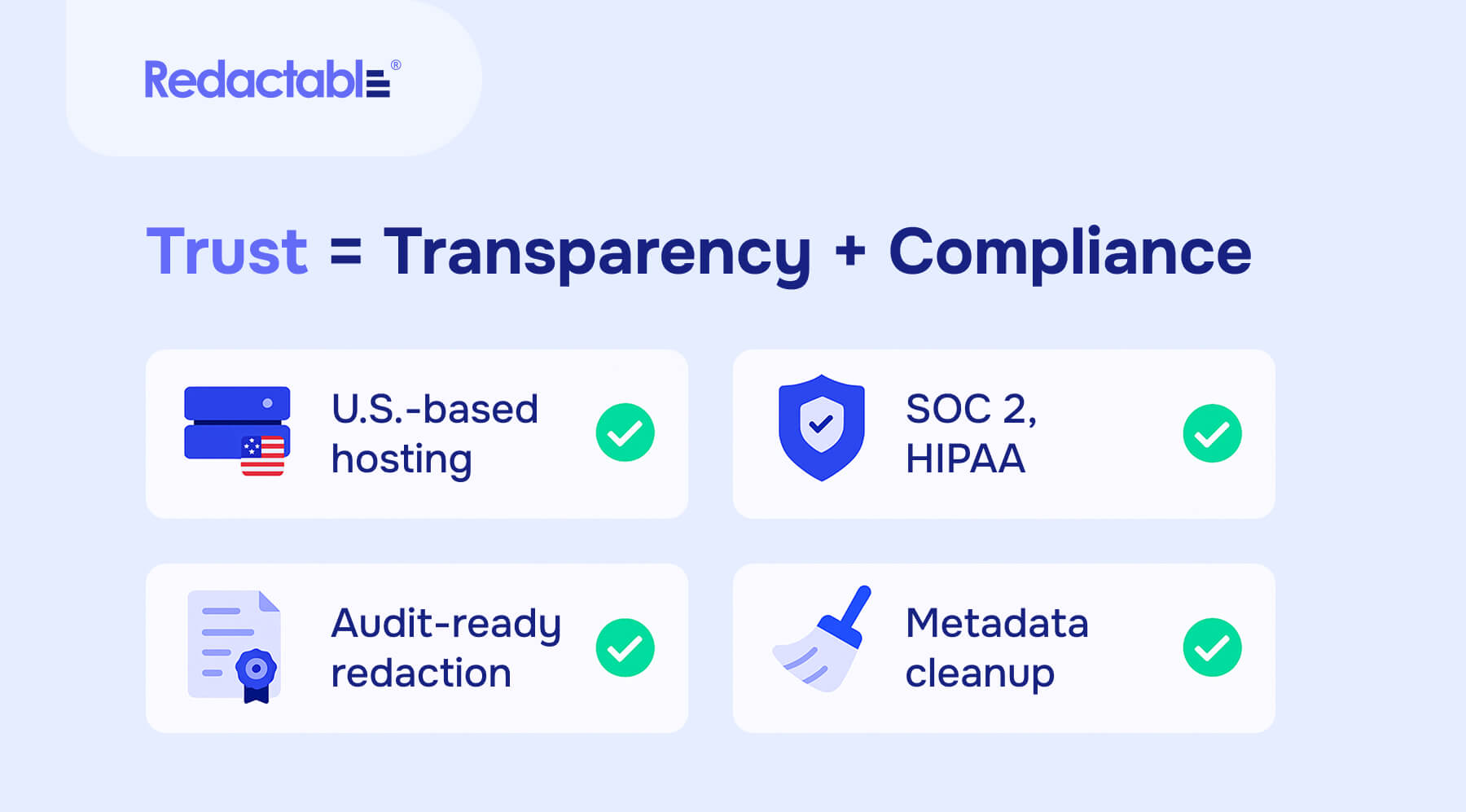
Redactable was built on the principle that trust = transparency + compliance. Here’s how it stands apart:
- U.S.-based hosting: All data is stored in private AWS cloud environments located in the United States, with multi-zone redundancy.
- Certifications that matter: SOC 2 Type II and HIPAA compliance, with monthly vulnerability scans and continuous monitoring.
- Audit-ready redaction: Redactable provides redaction certificates and detailed audit logs proving that sensitive data was irreversibly removed.
- Metadata cleanup: Beyond visible text, Redactable eliminates hidden layers and metadata, ensuring true redaction.
This clarity removes the gray areas compliance teams dread and gives legal, healthcare, and enterprise buyers peace of mind.
Redactable vs. Foxit/iDox.ai: Feature comparison
Why this matters for sensitive industries

- Legal redaction software: Court filings demand certifiable redaction. Leaving hidden text risks case sanctions.
- Healthcare redaction software: HIPAA fines can reach $50,000 per record. Residency clarity ensures compliance.
- Financial institutions: SEC and PCI standards require strict handling of account data.
- Government contractors: With CMMC and FedRAMP, vendors with geopolitical uncertainty risk being disqualified.
For each sector, Redactable’s U.S. residency and compliance framework reduce audit stress and boost customer trust.
Use cases of Redactable software
- PII redaction software for legal teams handling court filings.
- HIPAA redaction software for healthcare providers safeguarding PHI.
- AI redaction software for enterprises processing large document sets.
- PDF redaction software that permanently removes metadata and hidden text.
- Compliance redaction software for SOC 2, HIPAA, and GDPR audits.
Final thoughts
Choosing a redaction software solution is about more than convenience - it’s about trust. The recent Fox News report on U.S. agencies distancing themselves from Foxit underscores why ownership and data residency matter just as much as features.
Redactable offers:
- AI-powered redaction software that’s fast and accurate.
- Permanent redaction that removes sensitive content and metadata.
- U.S.-based data residency with compliance you can prove.
- Audit logs and certificates to satisfy regulators and courts.
When you need to redact sensitive information securely, Redactable isn’t just a tool. It’s a partner you can trust.


